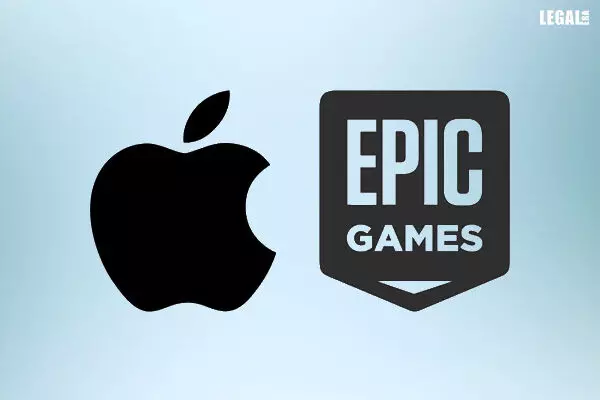- Home
- News
- Articles+
- Aerospace
- AI
- Agriculture
- Alternate Dispute Resolution
- Arbitration & Mediation
- Banking and Finance
- Bankruptcy
- Book Review
- Bribery & Corruption
- Commercial Litigation
- Competition Law
- Conference Reports
- Consumer Products
- Contract
- Corporate Governance
- Corporate Law
- Covid-19
- Cryptocurrency
- Cybersecurity
- Data Protection
- Defence
- Digital Economy
- E-commerce
- Employment Law
- Energy and Natural Resources
- Entertainment and Sports Law
- Environmental Law
- ESG
- FDI
- Food and Beverage
- Gaming
- Health Care
- IBC Diaries
- In Focus
- Inclusion & Diversity
- Insurance Law
- Intellectual Property
- International Law
- IP & Tech Era
- Know the Law
- Labour Laws
- Law & Policy and Regulation
- Litigation
- Litigation Funding
- Manufacturing
- Mergers & Acquisitions
- NFTs
- Privacy
- Private Equity
- Project Finance
- Real Estate
- Risk and Compliance
- Student Corner
- Take On Board
- Tax
- Technology Media and Telecom
- Tributes
- Viewpoint
- Zoom In
- Law Firms
- In-House
- Rankings
- E-Magazine
- Legal Era TV
- Events
- News
- Articles
- Aerospace
- AI
- Agriculture
- Alternate Dispute Resolution
- Arbitration & Mediation
- Banking and Finance
- Bankruptcy
- Book Review
- Bribery & Corruption
- Commercial Litigation
- Competition Law
- Conference Reports
- Consumer Products
- Contract
- Corporate Governance
- Corporate Law
- Covid-19
- Cryptocurrency
- Cybersecurity
- Data Protection
- Defence
- Digital Economy
- E-commerce
- Employment Law
- Energy and Natural Resources
- Entertainment and Sports Law
- Environmental Law
- ESG
- FDI
- Food and Beverage
- Gaming
- Health Care
- IBC Diaries
- In Focus
- Inclusion & Diversity
- Insurance Law
- Intellectual Property
- International Law
- IP & Tech Era
- Know the Law
- Labour Laws
- Law & Policy and Regulation
- Litigation
- Litigation Funding
- Manufacturing
- Mergers & Acquisitions
- NFTs
- Privacy
- Private Equity
- Project Finance
- Real Estate
- Risk and Compliance
- Student Corner
- Take On Board
- Tax
- Technology Media and Telecom
- Tributes
- Viewpoint
- Zoom In
- Law Firms
- In-House
- Rankings
- E-Magazine
- Legal Era TV
- Events
Apple Inc & Epic Games Requests U.S. Appeals Court to Reconsider Antitrust Ruling

Apple Inc & Epic Games Requests U.S. Appeals Court to Reconsider Antitrust Ruling
Tech giant Company- Apple and Epic Games have jointly requested U.S. Appeals Court to review its decision that may compel Apple to alter its payment practices within the App Store, for entirely different reasons.
In April, the U.S. Ninth Circuit Court of Appeals by its panel of three judges had affirmed a Lower Court’s decision from 2021 that rejected claims from Epic that the App Store policies violated federal laws. Specifically, it pertained to Apple's decision to forbid third-party app stores on its platforms.
The lawsuit accused Apple of imposing unjust requirements on software developers, compelling them to pay commissions of up to 30% on in-app purchases made by consumers.
The Trial Judge was of the view that Apple had violated state unfair competition law in California but did not violate U.S. antitrust regulations. In response, Apple has filed a new submission challenging a nationwide injunction related to its conduct, asserting that it is ‘procompetitive’ and does not breach antitrust laws.
In its submission to the 9th Circuit, Epic contended that its allegations against Apple directly relate to the fundamental objective of US antitrust law, which is to promote competition.
Furthermore, Epic argued that the Appeals Court had not thoroughly examined and weighed the consumer benefits asserted by Apple against the anticompetitive consequences of its practices.
The U.S. District Judge Yvonne Gonzalez Rogers’ ruling had ordered that Apple cannot not restrict AppStore developers from providing links and buttons that direct consumers to payment options outside of Apple’s in-app purchase system.
However, Judge Gonzalez Rogers had not provided any clear directions as to how Apple must allow those links or buttons.
Competition authorities in other countries, including South Korea, the Netherlands and Japan, have taken steps to force Apple to allow entry in its in-app payment systems.
Lawyers of both companies have suggested that the panel must review the case again or the Court may assemble an 11-judge panel, known as ‘en banc,’ to reconsider the disagreement.
Interestingly, Federal Appeals Courts rarely grant en banc requests.
In 2021, the Court had agreed to review nine cases en banc. Thereafter, in 2022, the Ninth Circuit received 646 petitions for en banc rehearing’s in the however it only approved 12 petitions out of the total petitions.
The ultimate decision on the outcome could rest upon the U.S. Supreme Court. Meanwhile, the Lower Court ruling is on hold pending further appellate proceedings.


